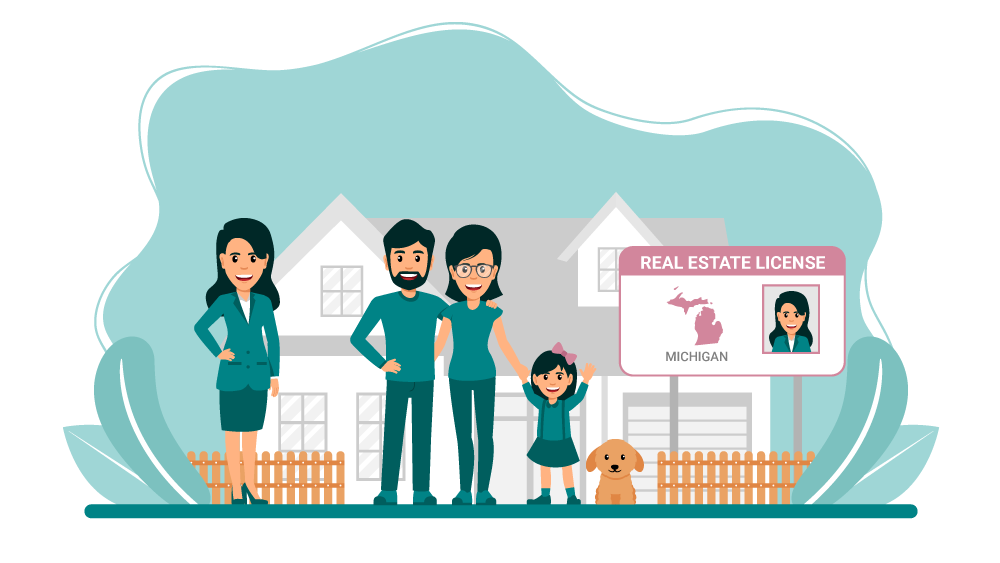When you’re ready to learn how to become a mortgage underwriter, you’ll need to know the right steps. This type of position requires specific expertise in the financial world. Of course, you can learn the necessary financial knowledge through a degree program or certification program.
As a mortgage underwriter, you will be responsible for the fate of a borrower applying for a mortgage. You will analyze the necessary information to make sure the borrower qualifies for a specific mortgage program. If you’re ready to become a mortgage underwriter, the following steps will help you.

Steps to Become a Mortgage Underwriter
1. Get the Right Mortgage Underwriter Education
It’s common to get a bachelor’s degree in finance or business before becoming a mortgage underwriter. However, it’s not required, and you can become an underwriter without a college degree. A certification program in finance can be a good choice; you can also earn an associate degree to help you qualify for this type of career.
The right education is where it will all start. You want to make sure you learn about financial management, financial statement analysis, and financial markets. It can be helpful to get a degree, but you can choose to enter a certification program instead.
2. Get your Mortgage Underwriter License
As an underwriter, you won’t need a license, but having one can help advance your career. You may need to start as a loan officer, which will require a state license. A Mortgage Loan Originator license will help open more career opportunities.
The pre-license program takes about 20 hours to complete. You can also get a designation, such as the Chartered Property Casualty Underwriter, to help give you the necessary qualifications.
3. Complete Mortgage Underwriter Training
On-the-job training will likely be necessary, too. For example, if you want to work as a mortgage underwriter, the company that hires you will likely provide the necessary training.
There are no actual formal requirements to become a mortgage underwriter. However, employers will likely look for those with great attention to detail and decision-making skills. Without the right training, you will need to gain experience as a loan officer, junior underwriter, or assistant.
Certification Programs to Help You Become a Mortgage Underwriter
While you can certainly get an associate degree or bachelor’s degree, certifications go a long way to becoming a mortgage underwriter. The NAMU (National Association of Mortgage Underwriter) offers seven different certification programs, including:
- Certified Mortgage Underwriter
- Certified Master Mortgage Underwriter
- Certified Ambassador Mortgage Underwriter
- Certified FHA Manual Underwriter
- Certified in Mortgage Regulatory Compliance
- Certified in Commercial Underwriting & Processing
- Certified Mortgage Quality Control Specialist
You will need to enroll and complete the underwriting certification program(s) of your choice. It will also be necessary to pass the exam and a criminal background check. Every year, you will need to recertify.
Mortgage underwriter certification will cover many different topics, including:
- Appraisals
- Tax Returns
- Due Diligence
- Conventional, VA, and FHA underwriting
- Basics of mortgage underwriting
- Advanced mortgage underwriting
- Fair Lending Laws
- TILA, RESPA, and red flag laws
- Calculating Income, DTI, and LTV
You may also learn even more, depending on the program(s) you choose. There are other certification programs outside the NAMU options, as well.
Benefits of Certification Programs from the NAMU
If you decide to get certified, you will gain many benefits. For example, those with a certification from NAMU tend to have a better chance at getting an interview with a potential employer.
It will also help qualify you for higher-level positions. Some of these certifications can help you move up after you’ve already started working as a mortgage underwriter. Of course, you’ll also gain more respect with the NAMU certification acronym after your name.
With the right certification program, you will increase your knowledge, competency, and skills. You will also gain a resume enhancer and the knowledge of how to apply mortgage rules and regulations.
Common Skills Needed to Become a Mortgage Underwriter
When you want to become a mortgage underwriter, you want to have the right skillset. Some skills can be learned, while others you will likely already have. Some of the common skills include:
- Analytical Skills – Your job will include analyzing financial data, which means you need good analytical skills.
- Mathematical Skills – Good math skills are necessary for those working with financial data.
- Attention to Detail – A mortgage application can be 100 pages or more. You will need to review this and pay attention to the accuracy of every detail.
- Organizational Skills – You might need to work on many applications on the same day. This requires good organizational skills.
- Communication Skills – You will also need to work with loan officers and others when approving and rejecting applications. This means you have to be able to explain why in good detail.
Many of these skills will become sharper as you go through training to become a mortgage underwriter.
Duties of a Mortgage Underwriter
As a mortgage underwriter, you will perform many duties. Your job will include making sure borrowers qualify for a mortgage program. The main goal is to ensure the applicant can repay the loan.
You will look at tax returns, pay stubs, W2’s, credit reports, a home appraisal, and a few other things. By looking at the debt-to-income ratio and other qualifications, you’ll be able to ensure the applicant can pay back the loan.
Your job will include reviewing the following:
- Debt-to-Income Ratio
- Income
- Credit history
- A home appraisal
- Title search
You will also need to make sure all the necessary documents are accurate and complete. By performing a full review of the documentation and underwriting guidelines, you will ensure borrowers qualify.
After a complete income and credit analysis, you will determine an applicant’s ability to repay the loan. Then, you will make a decision, usually within just a few days.
Frequently Asked Questions About Becoming a Mortgage Underwriter
How much can I earn as a mortgage underwriter?
The average salary range for a mortgage underwriter is $57K to $76K. This salary can range quite a bit more depending on experience and location. The salaries include the following:
- Entry Mortgage Underwriter (Mortgage Underwriter I) – $55K per year
- Intermediate Mortgage Underwriter (Mortgage Underwriter II) – $66K per year
- Senior Mortgage Underwriter (Mortgage Underwriter III) – $81K per year
- Specialist Mortgage Underwriter (Mortgage Underwriter IV) – $99K per year
Do I need a degree to become a mortgage underwriter?
No. Getting a degree isn’t a requirement, but it can be helpful. About half of the mortgage underwriting jobs are filled by a candidate with bachelor’s degrees. Another 7% have an associate degree, with 2% holding a master’s degree. However, more than 40% of the underwriting job openings are filled by those with only a high school diploma or GED.
Do I have to be licensed to become a mortgage underwriter?
If you decide to become a loan officer, you will need a state license. However, as a mortgage underwriter, you will not need a license. You will likely need a professional certification, however.
Are there entry-level positions available for mortgage underwriters?
Yes, as a new graduate from a degree program or even from the right certification program, you’ll be able to enjoy an entry-level position as a junior mortgage underwriter or an assistant. However, you may need to start as a loan officer or processor without any formal training.
What is the common work environment for a mortgage underwriter?
Typically, you will work in an office setting at a financial institution or bank. It’s common for mortgage underwriters to work on a computer most of the day. Attending meetings is also rather common. The business hours you will keep are typical 9-to-5. Some overtime may be necessary to meet tight deadlines.
How do you become a VA mortgage underwriter?
If you want to specialize in working with veterans, you can become a VA mortgage underwriter. It will require at least three years of experience in pre-underwriting, underwriting, or loan processing. You will also need the most recent year of that experience to have something to do with the underwriting decision for VA loans.
Does a career as a mortgage underwriter offer advancement opportunities?
Yes, with more education and experience, you can advance through the many different levels of underwriters. You can become a mortgage credit manager, mortgage credit analyst, mortgage underwriting manager, or even a senior underwriting manager. There are many higher-level positions, even if you start as a mortgage underwriting assistant.
Is Becoming a Mortgage Underwriter Right For You?
You can become a mortgage underwriter and earn a nice salary. This financial career offers plenty of advancement opportunities, and you can start without a college degree. But, of course, with a degree, you can open up doors. Adding the right certifications will also help you gain the career you desire as a mortgage underwriter.





